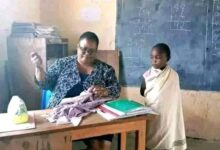‘CALAs Here To Stay’

GOVERNMENT is in the process of reviewing the Primary and Secondary Education competence-based curriculum with continuous assessment learning activities (CALA) being retained with possible adjustments.
Under the new curriculum, CALA has been the major talking point which has seen some parents, pupils and even educators resisting it.
Addressing journalists during a curriculum review media engagement workshop in Darwendale, Zvimba, Mashonaland West education authorities said CALA will be retained as it promotes inclusive evaluation of learners.
The competence-based curriculum is being reviewed after its first seven-year cycle came to an end last year after being introduced in 2015.
The curriculum is aimed at tooling pupils with skills to survive in the 21st century that is technologically driven.
The new curriculum review is expected to conform to national economic blueprint such as National Development Strategy 1 (NDS1) and President Mnangagwa’s vision 2030.
The Primary and Secondary Education Ministry said curriculum review does not mean that Government was doing away with the competence-based curriculum but finding ways of strengthening it.
Addressing journalists during a curriculum review media engagement workshop, Primary and Secondary Education Ministry Permanent Secretary Mrs Tumisang-Thabela said the review process will assess if the country’s education is delivering the aspirations and development prospects of Zimbabwe.
She said the curriculum should also provide knowledge, skills and values for life and work.
“First, and more importantly, the country has taken a new development trajectory through Vision 2030 which is to be realised through the implementation of the NDS1. With education expected to contribute towards human capital development and innovation, it is imperative that the curriculum is configured to fulfil this goal. Our curriculum must be positioned to provide a sustainable base for the production of critical and skilled human capital that will propel the country into an upper middle-income economy by 2030,” said Mrs Thabela.
She said the country has also been affected by several disasters which affected the delivery of education hence the curriculum review will also cater for any emergencies.
Mrs Thabela said the country had to adjust to disasters such as Cyclone Idai which hit several schools in Masvingo and Manicaland in 2019 before Covid-19 almost putting education to a standstill in 2020, resulting in the introduction of blended learning.
“These disasters and emergencies entail that new innovations in teaching and learning have to be taken on board to ensure learning does not stop. Then there are issues such as climate change, the transforming education agenda and science, technology and innovation among others which also need to be taken into consideration as we commit ourselves to transforming our education,” she said.
Mrs Thabela said the competence-based curriculum has shifted from focusing on the academically gifted pupils to harnessing skills and talents of pupils both in class and in extra curricula.
She said CALA becomes an important measurement instrument for the competence-based curriculum.
“The new assessment model takes into cognisance pupils’ different abilities and flairs, including skills, inherent talents, values and other achievements both in and out of class. These soft and hard skills observed over a period of time are then incorporated into the final examination marks,” she said.
“The CALA have thus become a key part of how we accredit the overall performance of a learner as a system. As we revie the curriculum, all these aspects will also be reviewed to ensure they are in line with the education aspirations of the country.”
Mrs Thabela said the ministry will be conducting nationwide consultative meeting on the implementation of the curriculum review as it wants an inclusive approach.
“The Ministry will also avail various platforms through which stakeholders can make their submissions while also holding external meetings with special interest groups. Once all the contributions from stakeholders have come through, the Ministry will produce the 2023-2030 Curriculum Framework for Primary and Secondary Education (another seven-year cycle),” said Mrs Thabela.
“A word of caution: We are not changing the curriculum; we already have the general framework in place. We are, however, reviewing it to ensure the curriculum continues to be relevant in the wake of new realities that have emerged since 2015.”
Zimbabwe School Examinations Council (Zimsec) research manager Mr Francis Chirume said CALA is here to stay and its implementation is in sync with international standards.
He said some developed countries have actually moved away from assessing learners summatively for the continuous assessment.
“We are now assessing 21st century skills, team work, time management, unhu/ubuntu, leadership, all those skills will be assessed because they are pertinent and significant in our day to day lives. We focus on peer and self-assessment. The learners should be in a position to judge the work of others so that they can improve,” he said.
“Gone are the days where we teach for competition, we don’t assess for competition, we assess so that we find out what the learners are able to do and what they are not able to do. We assess so that we can tap the talent of our learners.”
Mr Chirume said CALA are not extra work for teachers as this is similar to homework that has always been part of the education system but the only difference is that the work is being standardised within schools.
He said Zimsec was concerned with academic fraud where parents are allegedly paying some individuals to do CALA assignments for their children.








